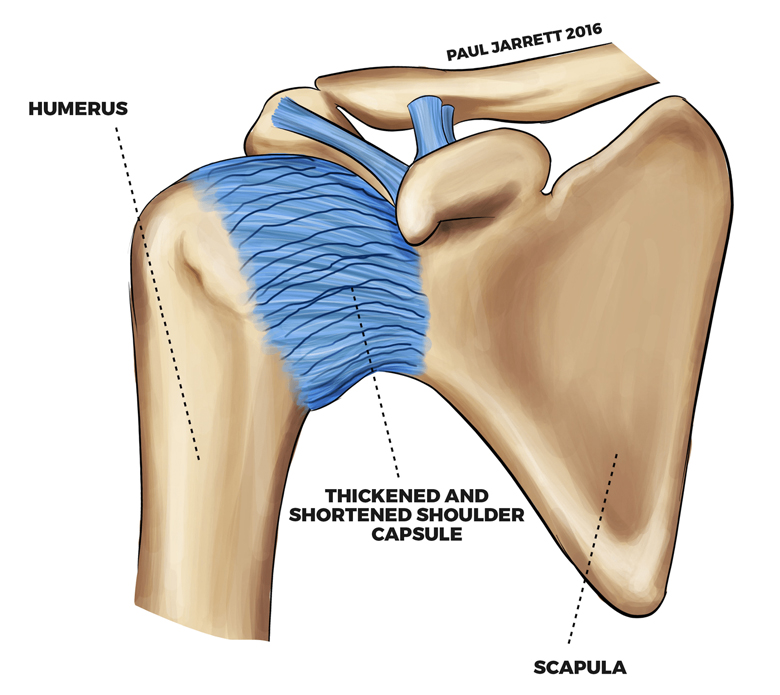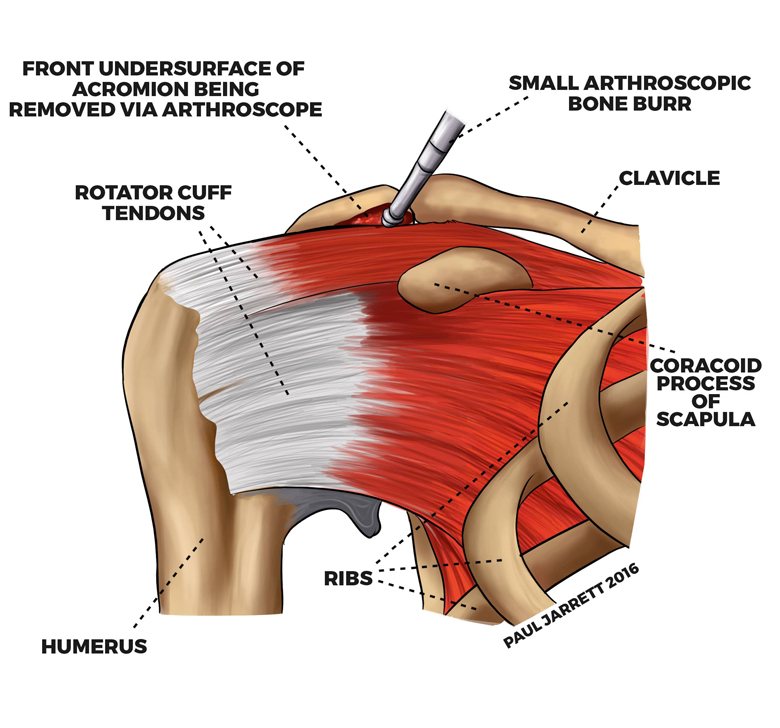
Adhesive Capsulitis
Adhesive capsulitis, often called Frozen Shoulder, is a condition where the capsule (lining) of the glenohumeral joint becomes thickened and tightens, producing shoulder pain and stiffness.
It can be caused by trauma (including operations to the shoulder), but it also can occur without injury. It is more common in people who have diabetes and also associated with other conditions, such as heart disease. Adhesive capsulitis has three phases, which do merge:- Freezing phase – Development of pain and progressive stiffening of the shoulder over a period, usually from 3-9 months.
- Frozen phase – Pain gradually improves although there is relatively little or no improvement in motion. The frozen phase usually lasts from between 4-12 months.
- Thawing phase – Motion improves as does residual pain, typically taking another 12-24 months to increase maximally.

How is frozen shoulder treated?
There are some treatments that can be considered for frozen shoulder. It is commonly painful, and therefore having adequate painkillers is sensible. In the freezing phases gentle physiotherapy to keep the shoulder mobile can of help, although activities which increase shoulder pain should be avoided. If adhesive capsulitis is identified in the first few weeks, then a steroid injection into your glenohumeral joint may be particularly useful. If your adhesive capsulitis is more long standing, then a steroid injection into your glenohumeral joint or an injection called hydrodilitation, which is undertaken by the radiology doctors and consists of an injection of steroid and some saline (salty water) under modest pressure to stretch out the capsule can lead to improvement for many patients.

